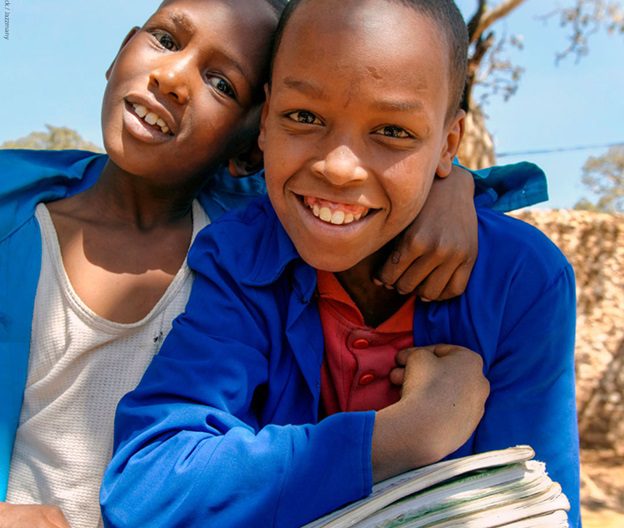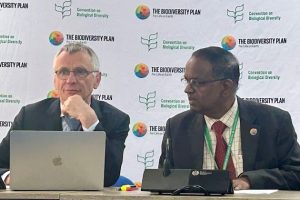
BY YOHANES JEMANEH
Education is a fundamental human rights, central to the dignity and empowerment of individuals, to driving sustainable development, and to building peace. Any solution to the world’s problems starts with education, the greatest tool the world has to fulfill and grow human potential.
The above statement was uttered by UN Secretary-General Antonio Guterres on the Transforming Education Pre‐Summit that was held in Paris at UNESCO Headquarters between 28 and 30 June 2022. Some 2,000 participants from around the world attended the Pre-summit which was intended to prepare for the Education Transformation Summit convened by the Secretary-General in the coming September.
The overall objective of the Pre‐Summit was to harness the evolving discussions on transforming education, elaborate initial content and establish a shared vision and suggested actions for the Summit, and generate greater momentum in the lead-up to September. More specifically, the Pre‐Summit aims to provide an inclusive and open forum for countries that advanced their national consultations, to present preliminary outcomes of their consultations, and share key elements of their commitment to transforming education in order to inspire other countries to come forward with bold commitments and actions at the Summit in September.
Accordingly, in the presence of more than 150 ministers, UNESCO warned of the double-edged crisis currently affecting education which is a learning crisis and a budgetary crisis. UNESCO Director-General Audrey Azoulay called for global mobilization to place education at the top of the agenda and meet the Sustainable Development Goals.
In 2019, UNESCO had already warned that it would be difficult to achieve the goal of “quality education for all by 2030”. Now, the COVID-19 pandemic has made the forecast even worse, prompting UNESCO to mobilize the world’s education communities and governments.
“The pandemic has exacerbated the global education crisis. School closures have resulted in significant learning losses. In low- and middle-income countries, 70 per cent of 10-year-olds are unable to understand simple written text – up from 57 per cent in 2019. Without new measures to support them, these young people will face significant difficulties in continuing their education and entering the workforce. We will then face a major social crisis. Today I am calling for mobilization: education must return to the top of the international community’s agenda if we are to meet the Sustainable Development Goals” Azoulay said.
A report released on 24 June by UNESCO, WB and UNICEF indicated that learning delays will have a strong impact on the economy. On a global scale the delays represent a cumulative loss of wealth for the current generation of schoolchildren of around 21 trillion USD. The previous estimate in 2021 was 17 trillion USD showing that the situation has declined over the past year.
In addition to this learning predicament, there is also a funding crisis. Another study by UNESCO and the World Bank shows that 40 percent of low and middle-income countries reduced their education spending during the pandemic. The average reduction was 13.5 percent. However, in the summer of 2022, budgets have still not returned to their 2019 levels.
Today, many education systems either in developing and developed countries are in deep crisis. For the UN Secretary-General, this is primarily a crisis of equity. Over 258 million children are out of school, the majority of them girls. And education experiences and results are profoundly affected by displacement, disability, income, geography, race and gender. A public good that has long been seen as the great equalizer now risks becoming the great divider.
Secondly, it is a quality crisis. Too many students in school are not learning foundational skills. Half of all 10-year-old students in low- and middle-income countries are unable to read a basic text. A damning statistic that is deteriorating further because of the pandemic.
A crisis of relevance is the third face of the educational problem. Today’s education systems are often stuck, in the past. Outdated curricula, teacher training and teaching methods leave students without the skills to navigate today’s fast-changing world. This also hinders students to deal with the digital revolution, thriving in a rapidly changing labor market, and so on, according to Guterres. Any country that is not actively conducting a root and branch overhaul of their education systems today risks being left behind tomorrow.
UNESCO is concerned about the wavering funding for education at this critical time. When public funding decreases, families have to increase their financial contribution. The Organization Assistant Director-General Stefania Giannini believed that the more the financial burden for education falls on families, the greater the risk of increasing inequality.
The question of resources is all the more important as education must also be transformed to meet the new challenges of the 21st century. As the recent UNESCO report on the Future of Education has shown, curricula and teaching must be adapted to issues such as the climate crisis and the digital revolution.
While there are many reasons for concern, the large-scale mobilization of governments this week at UNESCO gives cause for hope. More than 150 ministers and deputy ministers who personally took part in the debates underlined their determination to act, and collaborate on new initiatives.
These two days of collective work have thus allowed us to sketch out many possible measures. The discussions will continue on 19 September in New York, during the Summit for the Transformation of Education, which will bring together heads of state and government: a major event convened by the United Nations Secretary-General aimed at putting education at the top of the international agenda.
“Our world is facing a multitude of crises, from the COVID-19 pandemic to climate catastrophe; from increased conflict to rising debt and unequal access to resources for recovery. Progress towards the Sustainable Development Goals has been derailed. People’s trust in Governments and institutions is being undermined,” the Secretary-General said.
He stated that his report on “Our Common Agenda” of the UN set out the choice facing the world highlights growing tensions, environmental degradation, climate chaos and instability; and a breakthrough towards a safer, more equal and peaceful future. The transformation of education is essential to unlock that breakthrough.
Thus the Pre-Summit was an important opportunity for the world to build momentum and generate ideas to set out a new path for education. It is a new path that delivers new political commitment to action and measure that places education at the heart of sustainable, inclusive, resilient economies and societies.
It is a turning to gather heads of state to reaffirm promise and their plans to fundamentally transform education for the future. Therefore, it must identify the key elements of a new learning path, solidarity and solutions, and the work needed over the coming months, the Secretary-General noted.
Represented by President Sahlework Zewde who is also the Chair of UNESCO’s International Commission for Futures of Education, Ethiopia presented a report which was then published by the organization’s blueprint for transforming education in the 21st century.
President Sahlework highlighted the indispensable role of education and the need to transform it to contribute to global citizenship, peace and inclusive societies. Ethiopia was commended to be at forefront and to play a lead role in global drive to transform education.
She recommended five directions of change for transforming education such as making education a space of equal opportunity and shared abundance, preparing curricula that prioritize connections than categories, supporting teachers to create transformative education investing in teaching that builds cooperation and solidarity, ensuring digital connection in the world, and strengthening education as a global common good by ensuring more equitable cooperation within and across countries.
According to Guterres, countries need to focus on six critical areas to achieve overall educational improvement. Firstly, achieving the basics for all students through education systems that are truly inclusive and equitable. Secondly, shifting to models and systems that support lifelong learning and skills for the future of work. The third focus area recommended by is learning to live in peace with each other.
Fourthly, embracing a culture of collaborative problem-solving and learning how to learn. Fifthly, ensuring the digital transformation of education reduces inequalities and protects learning resources as a global public good. And sixth, boosting both domestic and international investment in education, including through the International Financing Facility for Education.
THE ETHIOPIAN HERALD WEDNESDAY 13 JULY 2022





